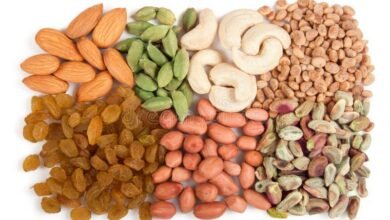The Truth About Belly Fat: How to Lose It Fast
Discover the truth about belly fat and how to lose it fast with proven strategies for diet, exercise, and lifestyle changes.

Belly fat is more than just a nuisance that makes your clothes feel tight; it’s a serious health concern that can impact your overall well-being. Excess , also known as visceral fat, is linked to a higher risk of chronic conditions such as heart disease, type 2 diabetes, and even certain cancers. Understanding the truth about belly fat and how to lose it fast is crucial for anyone looking to improve their health and achieve a slimmer waistline. In this article, we’ll dive deep into the science , explore effective strategies to shed it, and provide practical tips to help you reach your goals.
Understanding Belly Fat: The Science Behind It
Belly fat is not just a layer of fat beneath the skin; it includes visceral fat, which surrounds your internal organs. Unlike subcutaneous fat, which lies just under the skin, visceral fat is metabolically active and can interfere with your body’s hormonal balance. This type of fat releases fatty acids and inflammatory markers into the bloodstream, contributing to insulin resistance, high cholesterol, and other health issues.
The accumulation of belly fat is influenced by a combination of factors, including genetics, diet, lifestyle, and hormonal changes. For instance, stress can lead to an increase in cortisol levels, which promotes fat storage in the abdominal area. Similarly, a diet high in refined carbohydrates and sugary foods can spike insulin levels, encouraging fat storage around the midsection.
Understanding the root causes of belly fat is the first step toward addressing it. By focusing on both diet and lifestyle changes, you can effectively reduce visceral fat and improve your health.
The Role of Diet in Losing Belly Fat
When it comes to losing belly fat, diet plays a pivotal role. Consuming a diet rich in whole, unprocessed foods is essential for reducing visceral fat. Foods high in fiber, such as fruits, vegetables, and whole grains, help keep you full and regulate blood sugar levels, preventing insulin spikes that can lead to fat storage.
Protein is another critical component of a-busting diet. It boosts metabolism, reduces appetite, and helps preserve lean muscle mass during weight loss. Incorporate lean protein sources like chicken, fish, tofu, and legumes into your meals.
On the other hand, it’s important to limit foods that contribute to belly fat. Sugary beverages, processed snacks, and trans fats are major culprits. These foods not only add empty calories but also promote inflammation and insulin resistance, making it harder to lose fat.
In addition to choosing the right foods, portion control is key. Overeating, even healthy foods, can lead to weight gain. Practice mindful eating by paying attention to hunger cues and avoiding distractions during meals.
The Importance of Exercise in Targeting Belly Fat
While diet is crucial, exercise is equally important for losing belly fat. Cardiovascular exercises like running, cycling, and swimming are effective for burning calories and reducing overall body fat. However, to specifically target belly fat, incorporating strength training is essential.
Strength training builds muscle mass, which increases your resting metabolic rate. This means you burn more calories even at rest, making it easier to shed stubborn fat. Focus on compound exercises like squats, deadlifts, and bench presses, which engage multiple muscle groups and maximize calorie burn.
High-intensity interval training (HIIT) is another powerful tool for belly fat loss. HIIT involves short bursts of intense exercise followed by brief recovery periods. This type of workout not only burns calories during the session but also elevates your metabolism for hours afterward.
Consistency is key when it comes to exercise. Aim for at least 150 minutes of moderate-intensity aerobic activity or 75 minutes of vigorous activity per week, along with two or more days of strength training.
The Impact of Sleep and Stress on Belly Fat
Sleep and stress management are often overlooked but are critical factors in losing belly fat. Poor sleep disrupts the balance of hunger hormones, increasing appetite and cravings for unhealthy foods. Aim for 7-9 hours of quality sleep each night to support your weight loss efforts.
Chronic stress is another major contributor to belly fat. When you’re stressed, your body produces cortisol, a hormone that promotes fat storage in the abdominal area. Incorporate stress-reducing practices like meditation, yoga, or deep breathing exercises into your daily routine.
The Role of Hydration in Fat Loss
Staying hydrated is essential for overall health and can aid in belly fat loss. Water helps flush out toxins, supports digestion, and can even boost metabolism. Drinking a glass of water before meals can also help control appetite and prevent overeating.
Avoid sugary drinks and excessive alcohol consumption, as these can contribute to belly fat. Instead, opt for water, herbal teas, or infused water with slices of fruits and herbs for added flavor.
The Power of Consistency and Patience
Losing belly fat is not an overnight process; it requires consistency and patience. Crash diets and extreme workout regimens may yield quick results, but they are often unsustainable and can lead to rebound weight gain. Instead, focus on making gradual, sustainable changes to your diet and lifestyle.
Set realistic goals and track your progress to stay motivated. Celebrate small victories along the way, whether it’s fitting into a smaller size or noticing increased energy levels. Remember, the journey to losing belly fat is a marathon, not a sprint.
Common Myths About Belly Fat
There are many misconceptions about fat that can hinder progress. One common myth is that you can spot-reduce fat through specific exercises. While targeted exercises can strengthen and tone muscles, they won’t specifically burn fat in that area. Fat loss occurs throughout the body as a result of a calorie deficit.
Another myth is that all fats are bad. In reality, healthy fats like those found in avocados, nuts, and olive oil are essential for overall health and can even support weight loss. The key is to consume them in moderation.
The Long-Term Benefits of Losing Belly Fat
Losing belly fat goes beyond aesthetics; it has profound health benefits. Reducing visceral fat lowers your risk of chronic diseases, improves insulin sensitivity, and enhances overall metabolic health. Additionally, shedding excess weight can boost energy levels, improve sleep quality, and enhance self-confidence.
By adopting a healthy lifestyle that includes a balanced diet, regular exercise, and stress management, you can achieve long-term success in maintaining a healthy weight and reducing belly fat.
Read More: How to Lose Belly Fat Naturally & Effectively
Conclusion
The truth about fat is that it’s not just a cosmetic issue but a significant health concern that requires attention. By understanding the science behind belly fat and implementing effective strategies like a healthy diet, regular exercise, and stress management, you can lose fat fast and improve your overall well-being. Remember, consistency and patience are key to achieving lasting results.
In conclusion, losing fat is a journey that involves making sustainable lifestyle changes. Focus on nourishing your body with wholesome foods, staying active, and prioritizing mental health. With dedication and the right approach, you can achieve a healthier, slimmer waistline and enjoy the numerous benefits that come with it.
FAQs
Can I lose belly fat without exercising?
While diet plays a significant role in fat loss, combining it with exercise yields the best results. Exercise helps burn calories and build muscle, which supports long-term weight management.
How long does it take to lose belly fat?
The timeline varies depending on factors like diet, exercise, and genetics. With consistent effort, noticeable changes can occur within a few weeks to months.
Are there specific foods that burn belly fat?
No single food can target belly fat, but a diet rich in fiber, protein, and healthy fats can support overall fat loss.
Is belly fat more dangerous than other types of fat?
Yes, visceral fat is more harmful as it surrounds internal organs and increases the risk of chronic diseases.
Can stress cause belly fat?
Yes, chronic stress elevates cortisol levels, which can lead to fat storage in the abdominal area. Managing stress is crucial for reducing belly fat.











